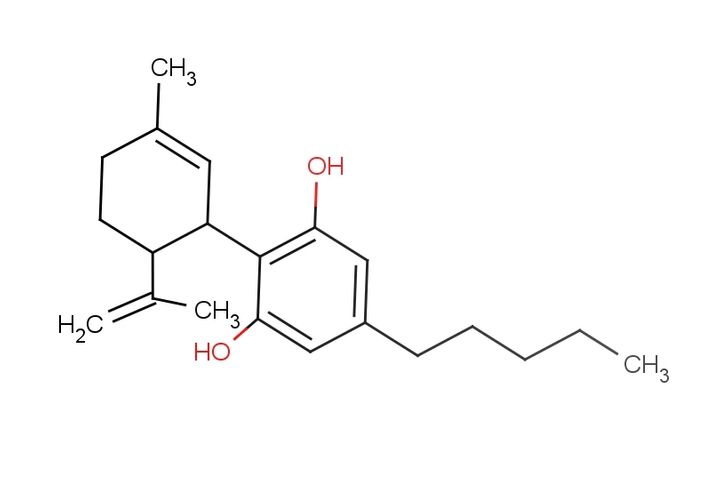News
CBD vs THC: Whats the Difference?
It seems no one can escape the constant barrage of CBD ads on radio and TV, all touting the
extraordinary benefits of this new holistic cure for the aches and pains that ail us humans.
Demand for natural medicine is growing because of its well-known health benefits. However,
confusion about CBD and THC prevents people from fully accepting the fact that CBD does not
contain THC.
The Real Difference between CBD and THC
THC or tetrahydrocannabinol is the psychoactive compound in marijuana responsible for getting
people high. Most people already know this, but CBD and THC are similar and have the same
chemical makeup except for a microscopic difference that makes them vastly different from
each other. With that, an explanation is in order.
Of the 85 cannabinoids present in the cannabis plant, the most prominent are THC and CBD
(cannabidiol). Cannabinoids interact with the network of receptors in the human body. This
interaction helps support vital functions within our bodies.
During the late 20th century, scientists discovered two cannabinoid receptors, CB1 and CB2.
Parts of the brain responsible for processes such as memory, emotion, and motor coordination,
to name a few, find an abundance of CB1 receptors there.
Similarly, our central nervous system and immune system also find an abundance of CB2
receptors. Interaction between the receptors and CBD and THC is where we see the health
benefits like pain and anxiety relief, a boost in appetite, mood management, and much more.
The Effects on the Body
CBD and THC each have different molecular structures, which affect the body in separate ways.
The bond formed when THC binds directly with CB1 receptors creates and sends signals to the
brain, resulting in the psychoactive effect of getting high.
CBD, on the other hand, does not bond with the CB1 receptors, cancelling the psychoactive
effects like that with THC.
Benefits of CBD Oil
Conditions of inflammation like IBS, eczema, arthritis, lupus, and the everyday aches and pains
we experience can limit every aspect of our lives. Common medical solutions designed to only
treat symptoms fail because they do not address finding the cause of the inflammation. CBD oil
helps both in relieving the pain from inflammation and targeting the cause.
The CB2 receptors mentioned earlier assist the body in regulating our body’s natural immune
response to inflammation, caused by injury, foreign bacteria, and viruses. In a worst-case
scenario, chronic inflammation results from our immune system unable to recognize when our
body naturally responds to the cause of the inflammation and attacks healthy cells.
CBD stops the irregular behavior of the immune system before it starts. Inflammation begins
with the release of small proteins called cytokines by the immune cells, and CBD suppresses
the production of cytokines and boosts T-regulatory (Tregs) that changes the immune system
and helps to prevent autoimmune diseases.
Anxiety Relief from CBD Oil
An interesting and very telling study performed in 2011 to study how CBD affects the social
anxiety disorder called SAD found that CBD might help ease severe cases of social anxiety.
Scientists selected 24 participants for the study that never received treatment for SAD. One
group of 12 received 600 mg of CBD, and the control group received a placebo. They took a
simulated public speaking test while the scientists measured their blood pressure, heart rate,
and other measurements of their physiological and psychological stress levels.
Those who received the CBD showed much reduced levels of anxiety, cognitive impairment,
and discomfort during the speaking test. The control group with the placebo showed opposite
results.
With consideration for anxiety and depression and their symptoms, it’s possible CBD could help
by targeting the cause of the problems associated with the symptoms. There is a link between
depression and anxiety and low levels of serotonin.
The serotonin receptor called 5-HT1A is activated by CBD and it increases serotonin levels in
the brain. CBD also prevents the reuptake of neurotransmitters adenosine and anandamide
which act to elevate mood and work to decrease the effects of anxiety. Besides these benefits,
the reduction of pain and inflammation helps promote sleep and relaxation, reducing stress
levels, and providing a sense of calm.
CBD and Pain Relief
It’s becoming common knowledge that one of the greatest benefits of CBD oil is its pain
relieving capability. Many studies show the effectiveness of CBD in treating pain from several
painful conditions like arthritis, MS, spinal cord injuries, back pain, and muscle spasms. A
welcome addition to this list is its pain-relieving properties that help Parkinson’s Disease
patients.
To date, research data from large studies show CBD to have a major impact on glycine
receptors in the body’s central nervous system. Their role is key in the perception of pain, and
the action of CBD increases the effect of glycine receptors reducing the sensation of pain.




